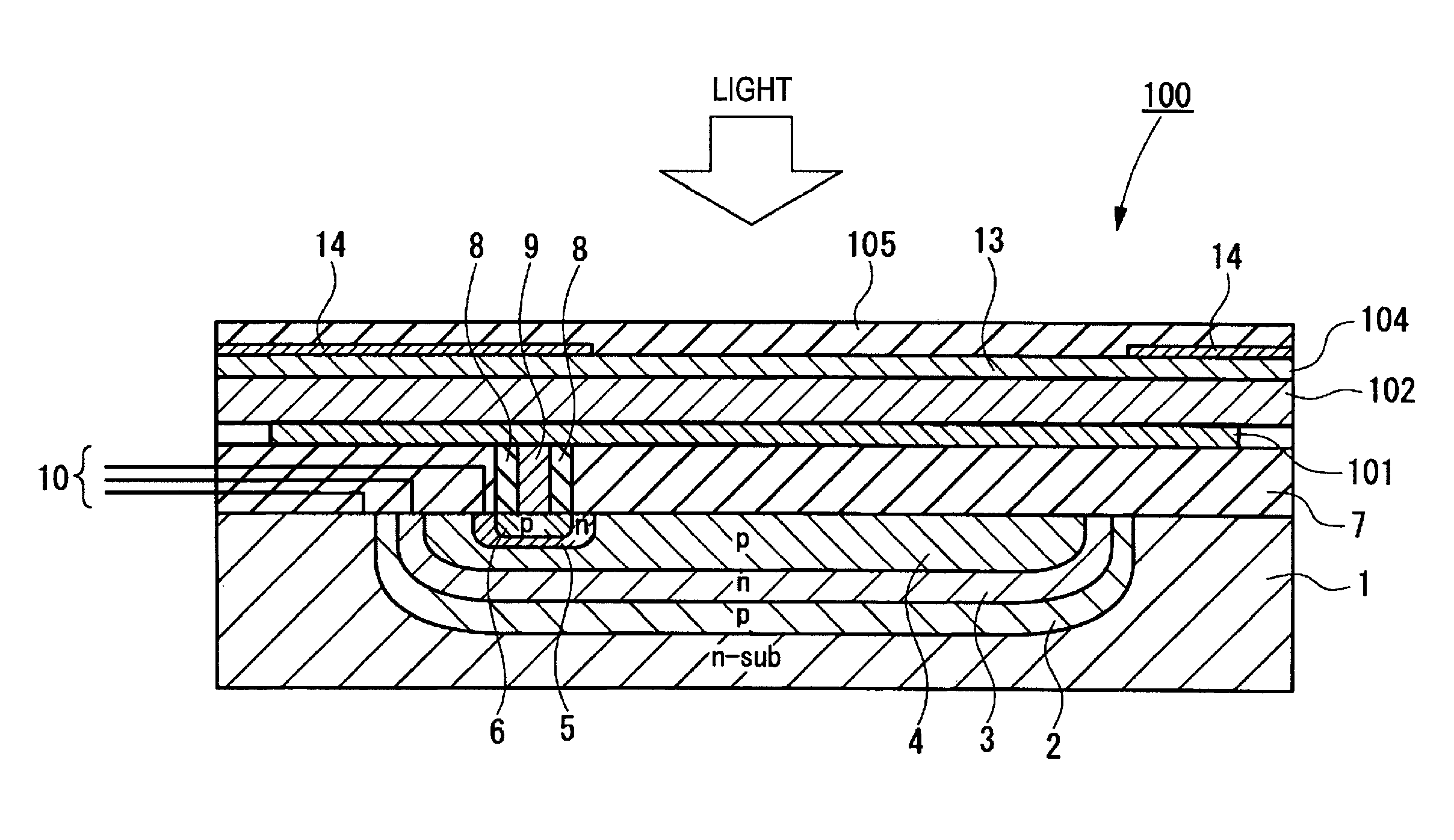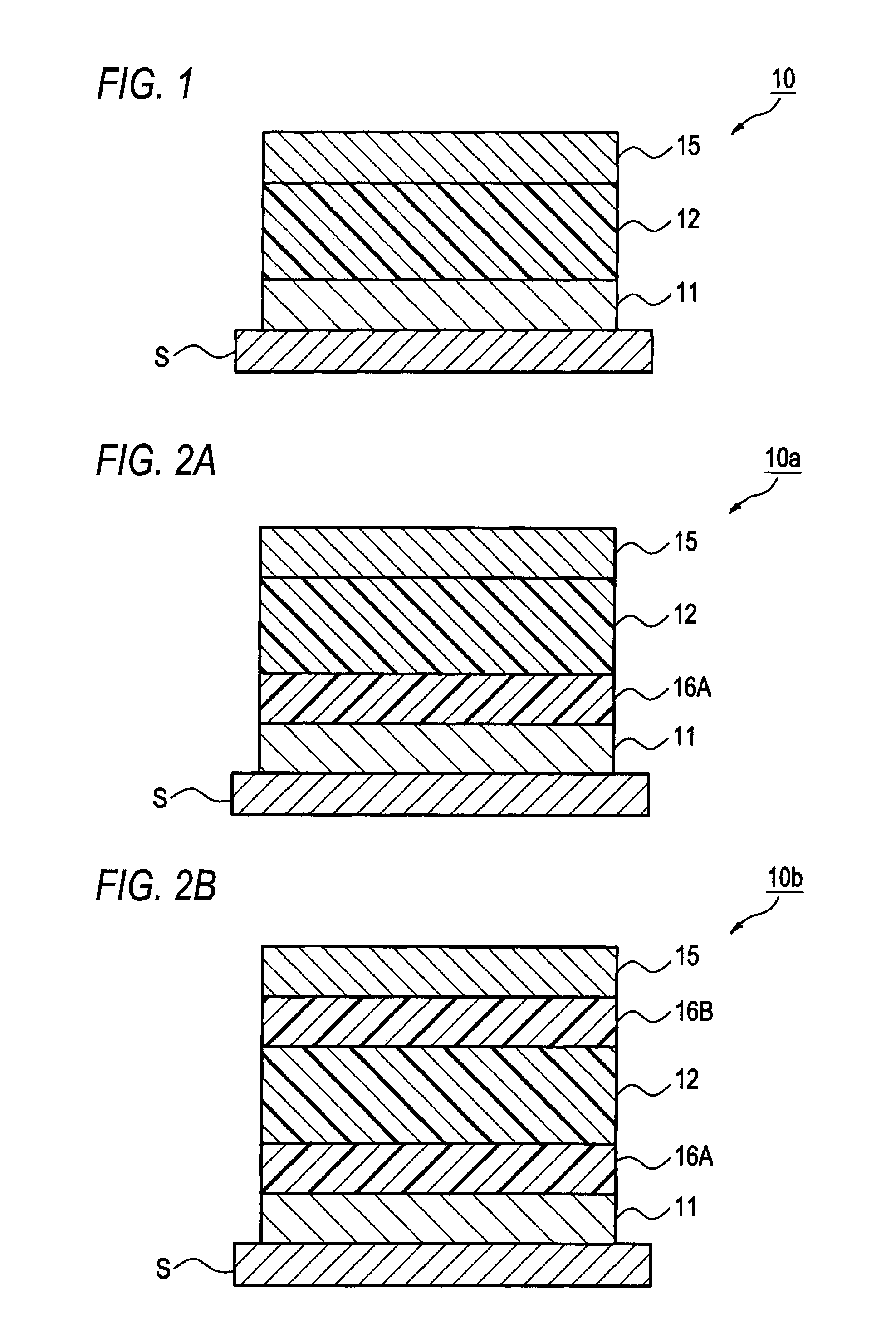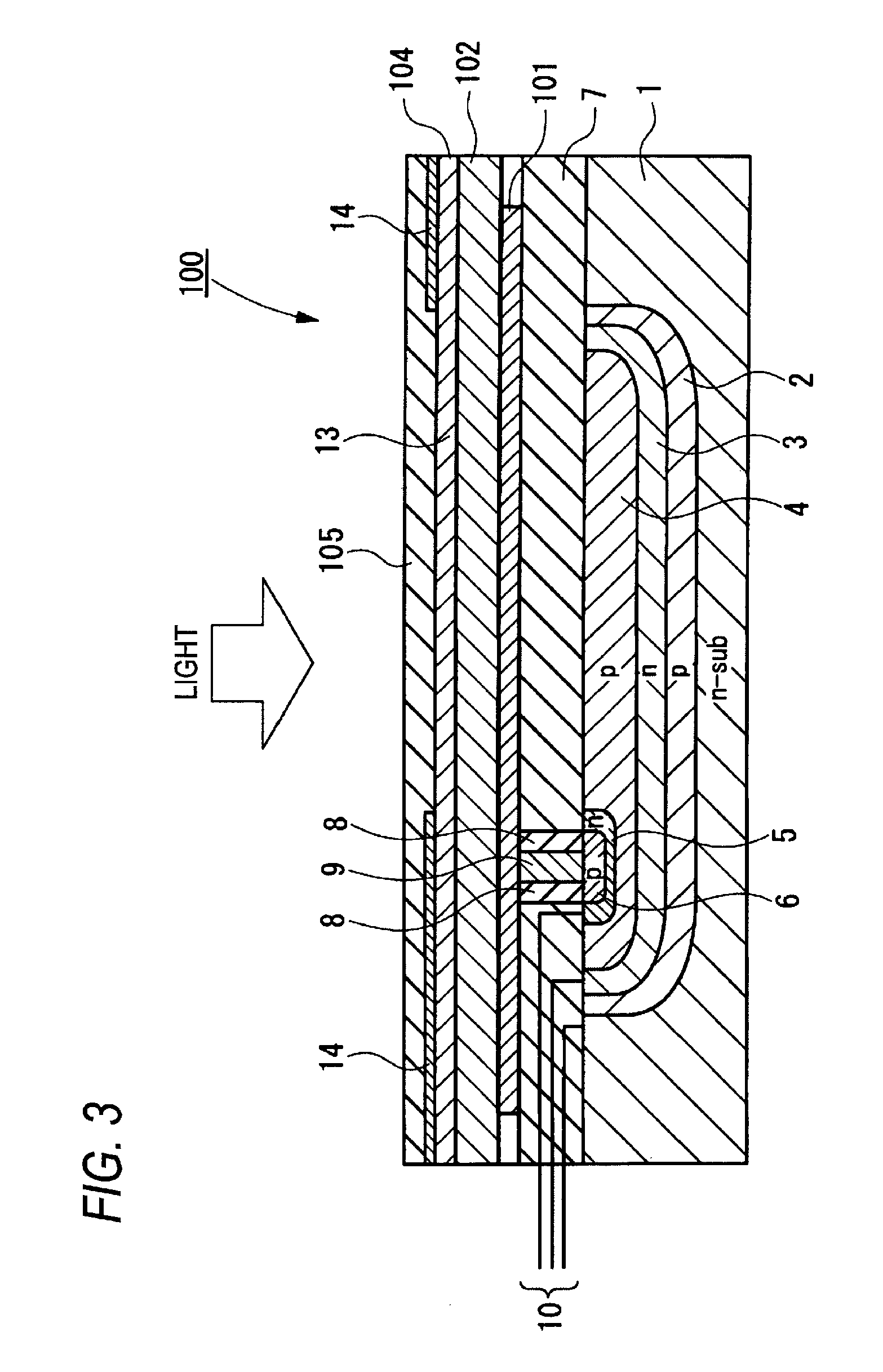Photoelectric conversion device, production method thereof and imaging device
a technology of photoelectric conversion and production method, applied in thermoelectric devices, nanoinformatics, final product manufacturing, etc., can solve the problems of reduced aperture ratio and light gathering efficiency reduction, large dark current attributable to material used or film structure, and increase of dark current. , to achieve the effect of high-speed responsivity and excellent photoelectric conversion efficiency
- Summary
- Abstract
- Description
- Claims
- Application Information
AI Technical Summary
Benefits of technology
Problems solved by technology
Method used
Image
Examples
example 1
[0342]A photoelectric conversion device was produced as follows.
[0343]Amorphous ITO was deposited on a substrate by sputtering to a thickness of 30 nm to form a lower electrode. On this lower electrode, a layer formed by co-depositing Compound (1) shown below and fullerene (C60) at a vapor deposition rate of 1.7 Å / s to a thickness of 100 nm and 300 nm, respectively, in terms of a single layer was deposited by vacuum heating deposition in a state of the substrate temperature being controlled to 25° C. to form a photoelectric conversion layer. Furthermore, TPD and mMTDATA were deposited thereon to a thickness of 20 nm and 300 nm, respectively, to form an electron blocking layer. The vacuum deposition of the photoelectric conversion layer and electron blocking layer was performed at a vacuum degree of 4×10−4 Pa or less for all layers.
[0344]Thereafter, amorphous ITO was deposited thereon as an upper electrode by sputtering to a thickness of 10 nm to form a transparent upper electrode. I...
example 2
[0345]A photoelectric conversion device was produced in the same manner except that in the deposition of the photoelectric conversion layer of Example 1, the co-deposited layer of Compound (1) and fullerene (C60) was deposited at a substrate temperature of 80° C.
example 3
[0346]A photoelectric conversion device was produced in the same manner except that in the deposition of the photoelectric conversion layer of Example 1, the co-deposited layer of Compound (1) and fullerene (C60) was deposited at a substrate temperature of 105° C.
PUM
 Login to View More
Login to View More Abstract
Description
Claims
Application Information
 Login to View More
Login to View More - R&D
- Intellectual Property
- Life Sciences
- Materials
- Tech Scout
- Unparalleled Data Quality
- Higher Quality Content
- 60% Fewer Hallucinations
Browse by: Latest US Patents, China's latest patents, Technical Efficacy Thesaurus, Application Domain, Technology Topic, Popular Technical Reports.
© 2025 PatSnap. All rights reserved.Legal|Privacy policy|Modern Slavery Act Transparency Statement|Sitemap|About US| Contact US: help@patsnap.com



